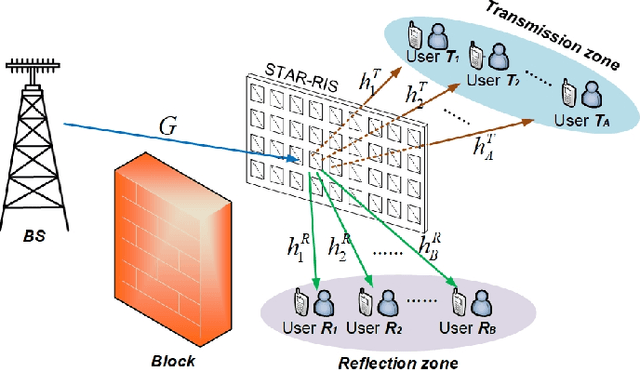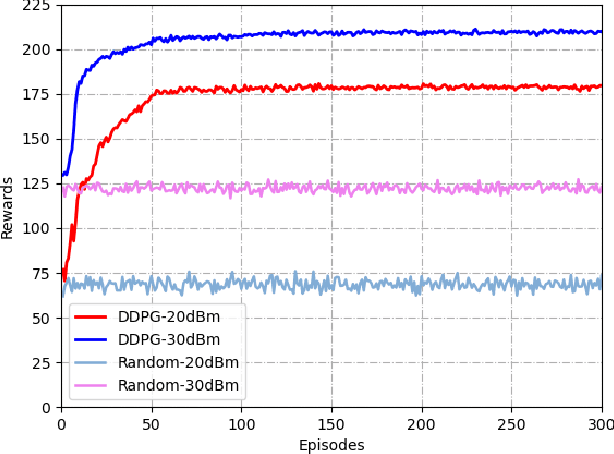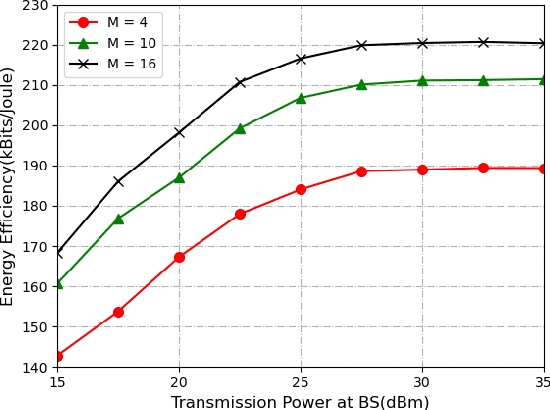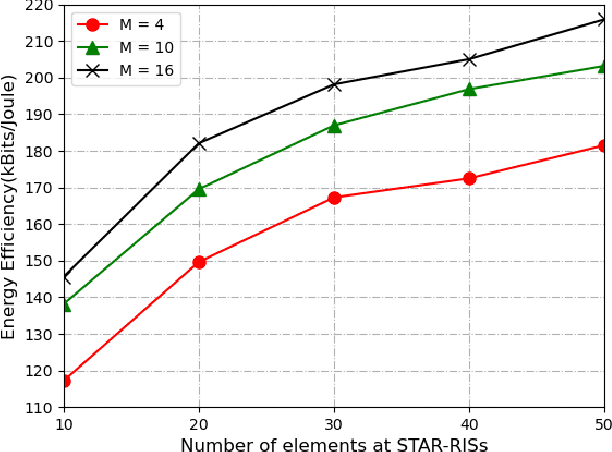Energy-Efficient Design for a NOMA assisted STAR-RIS Network with Deep Reinforcement Learning
Paper and Code
Nov 30, 2021



Simultaneous transmitting and reflecting reconfigurable intelligent surfaces (STAR-RISs) has been considered as a promising auxiliary device to enhance the performance of the wireless network, where users located at the different sides of the surfaces can be simultaneously served by the transmitting and reflecting signals. In this paper, the energy efficiency (EE) maximization problem for a non-orthogonal multiple access (NOMA) assisted STAR-RIS downlink network is investigated. Due to the fractional form of the EE, it is challenging to solve the EE maximization problem by the traditional convex optimization solutions. In this work, a deep deterministic policy gradient (DDPG)-based algorithm is proposed to maximize the EE by jointly optimizing the transmission beamforming vectors at the base station and the coefficients matrices at the STAR-RIS. Simulation results demonstrate that the proposed algorithm can effectively maximize the system EE considering the time-varying channels.
 Add to Chrome
Add to Chrome Add to Firefox
Add to Firefox Add to Edge
Add to Edge